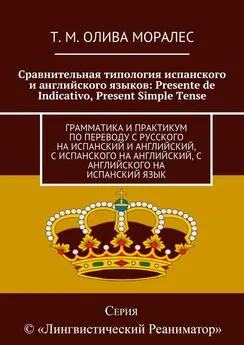Станислав Коростелев - Английский язык для юристов. Предпринимательское право
- Название:Английский язык для юристов. Предпринимательское право
- Автор:
- Жанр:
- Издательство:046ebc0b-b024-102a-94d5-07de47c81719
- Год:2006
- Город:СПб
- ISBN:5-469-01382-0
- Рейтинг:
- Избранное:Добавить в избранное
-
Отзывы:
-
Ваша оценка:
Станислав Коростелев - Английский язык для юристов. Предпринимательское право краткое содержание
Настоящее учебное пособие предназначено для овладения лексикой в области предпринимательского и коммерческого права студентами лингвистических вузов и студентами гражданско-правовой специализации юридических вузов.
Книга призвана дать преподавателям и студентам специальный языковой и профессиональный материал, ориентированный на повышение качества профессиональной подготовки в области правовой лингвистики и международного бизнеса.
Английский язык для юристов. Предпринимательское право - читать онлайн бесплатно ознакомительный отрывок
Интервал:
Закладка:
(2) Intended gets rights; intended b/c ID'd in promise, perf. runs to you & ben'y/promisee relationship supportg intention to benefit b. Donee or Creditor Ben'y
(1) Donee gets as gift
(2) Creditor when promisee owed debt & using promisor's perf. to satisfy c. Ben'y can enforce promise way it existed when rts vested
-> Promisor/ee can change, or rescind promise until vests
-> Vests when ben'y learns & assents (words/conduct), but promise can reserve power in promisee d. Promisee can also enforce promise against promisor (MAJ)
e. Creditor ben'y can sue promisee on underlying obligation or Promisor on 3P promise
3. Assignment (if assign whole K, that's assignmt of rts & delegation of duties)
-> Obligor (owes perf.), Assignor, Assignee a. Is it Assignable? Not if:
(1) K prohibits EXCEPT privilege, not power to assign destroyed so assignmt valid, but Assignor breached and totally enforceable under Code (no breach)
(2) Law Prohibits (make sure it's an ASSIGNMENT 1st!)
(3) Pers. Services K where assignmt = substn'l change in perf., or
(4) Substant'l change in perf. b/c of assignment (requirements Ks suspect or change in time/place of perf.)
b. Was it Properly Assigned?
-> Need desc. of rt assigned & words of present transfer (even if perf. for future)
-> Warranting to assignee assignable & enforceable (Assignee can sue for W breach)
c. Obligor must perform to Assignee, Assignee can enforce, Assignor no rt anymore d. Problems:
(1) Assignor dealing w/ Obligor
-> if b/4 Obligor gets notice, assignee v. assignor for breach W
-> if after notice, assignee v. Obligor, whose stuck paying twice
(2) Assignor multiple assignments
(a) Are any Gratuitous (automatically revoked unless writing delivered, token chose, or estoppel (detrimentally, reas. & foreseeably relied)
(b) Otherwise 1st w/ valid unrevoked assignment unless subsequent w/o knowledge of others gets 1) pd, 2) judgment, 3) token chose from Obligor or works 4) novation w/ Obligor (4 «horsemen» of assignment)
4. Delegations (of duty)
Delegator (of duty), Delegate (does duty), Obligee (gets perf.)
a. Is it Delegable? NOT IF:
(1) K prohibits (works here!)
(2) Prohibited by law
(3) Pers. Services (unless routine)
(4) Substantially changes char. of perf. (output Ks or time/place change)
b. No particular form for delegation (unlike assignment)
c. If delegate for consideration, Obligee can force delegate to perform (delegate makes promise to Delegator to perf. to original Obligee & Obligee now 3P ben'y of their K)
Unit 10
Discharge and Redemies
Исполнение обязательств и средства их обеспечения
Исполнение обязательств может обеспечиваться неустойкой, залогом, удержанием имущества должника, поручительством, банковской гарантией, задатком и другими способами (главы 21–26 ГК РФ).
– actual damages – фактический, реальный ущерб
– anticipatory breach – прекращение (договора) до наступления срока исполнения
– compensatory damages – компенсаторные, реальные, фактические убытки
– complete performance – оконченное исполнение; совершение
– condition concurrent – взаимозависимые условия (подлежащие одновременному исполнению)
– condition precedent – предварительное условие
– condition subsequent – последующее, резолютивное, отменительное условие
– consequential damages – косвенные убытки
– general release – отказ от настоящих и будущих притязаний, общий отказ
– incidental damages – побочные, случайные убытки
– injunction – судебный запрет
– liquidated damages – заранее оцененные убытки; оценочная неустойка; ликвидные убытки
– mutual rescission – взаимное аннулирование, прекращение
– nominal damages – номинальные убытки; номинальное возмещение, имеющее символическое значение
– performance – исполнение; совершение
– punitive damages – убытки присуждаемые в качестве наказания
– reasonable time – разумно необходимый срок
– satisfactory performance – достаточное, убедительное исполнение
– specific performance – исполнение в натуре, реальное исполнение
– speculative damages – предполагаемые убытки
– substantial performance – исполнение всех существенных условий договора
– tender of payment – предложение платежа
– tender of performance – предложение исполнения
– termination by waiver – отказ правообладателя от чего-либо
Most contracts are discharged by performance, which means that the parties do what they agreed to do under the terms of the contract. When performance occurs, the obligations of the parties end. Sometimes, however, the parties do not perform in a timely or satisfactory manner. At other times, they perform partially but not completely. At still other times, they do not perform at all.
When the time for performance is not stated in the contract, the contract must be performed within a reasonable time. A reasonable time is the time that may fairly, properly, and conveniently be required to do the task that is to be done, with regard to attending circumstances.
When either personal taste or objective standards have determined that the contracting parties have performed their contractual duties according to the agreement, satisfactory performance exists. Satisfactory performance is either an express or implied condition of every contract.
When both parties fully accomplish every term, condition, and promise to which they agreed, complete performance occurs. When a party, in good faith, executes all promised terms and conditions with the exception of minor details that do not affect the real intent of their agreement, substantial performance occurs. Complete performance terminates an agreement, discharging the parties of any further obligation to one another. Ordinarily, substantial performance also serves to discharge the agreement but with a difference. A party, who complains that performance has been substantial, but not complete, has the right to demand reimbursement from the offending party to correct those details that prevented complete performance.
Failing to fulfill or accomplish a promise, contract, or obligation according to its terms defines nonperformance.
Parties to a contract may stipulate the time and conditions for termination and discharge as part of their agreement. They also may subsequently agree not to do what they had originally promised. The latter is the case when there is a mutual rescission of the contract, a waiver of performance by one or more of the parties, a n ovation, or an accord and satisfaction to liquidate an outstanding debt or obligation.
During contract negotiation, parties may agree to certain terms that provide for automatic termination upon the occurrence or nonoccurrence of stated events. These terms are categorized as conditions subsequent.
Contracting parties may, either before or after performance commences, rescind their contract as a result of further negotiation and by their mutual assent. Mutual rescission requires both parties to return to the other any consideration already received or to pay for any services or materials already entered.
When a party with the right to complain of the other party's unsatisfactory performance or nonperformance fails to complain, termination by waiver occurs. It is a voluntary relinquishing (waiver) of one's rights to demand performance. A waiver differs from a discharge by mutual rescission in that a waiver entails no obligation by the parties to return any consideration that may have been exchanged up to the moment of rescission. Discharge by waiver, when made, is complete in itself.
By novation, the parties to a contract mutually agree to replace one of the parties with a new party. The former, original, party is released from liability under the contract.
An accord and satisfaction is a resulting new agreement arising from a bona fide dispute between the parties as to the terms of their original agreement. The mutual agreement to the new terms is the accord; performance of the accord is the satisfaction. The accord, although agreed to, is not a binding agreement until the satisfaction has been made. The original agreement is not discharged, therefore, until the performance or satisfaction has been provided as promised.
A general release is a document expressing the intent of a creditor to release a debtor from obligations on an existing and valid debt. A general release terminates a debt and excuses the debtor of any future payment without the usual requirement that consideration be given in return.
Occasionally, it becomes impossible to perform a contract. Conditions that arise subsequent to the making of a contract may either void the agreement or make it voidable by one of the parties. Discharge through impossibility of performance may, in some situations, be allowed only if the specific and anticipated impossibility has been made a condition to the agreement.
The performance of a promised act may be discharged by operation of law. Some law that causes the parties to be discharged from their obligations, such as bankruptcy or the statute of limitations, comes into play.
A discharge in bankruptcy from a court will be allowed as a defense against the collection of most, but not all, debts of the bankrupt. Therefore, most contractual obligations to pay money come to an end when a party files for bankruptcy.
Statutes providing time limits within which suits may be brought are known as statutes of limitations. The statute of limitations does not technically void the debt, but it gives the debtor a defense against any demand for collection.
When contractual obligations terminate by agreement or by operation of law, no liability falls to either party. When one of the parties fails to carry out the terms of a contract, a breach of contract occurs and liability falls to the party who has not done what was promised. Breach of contract comes from negligent or intentionally wrongful performance, expressed repudiation of contractual obligations, or an abandonment of performance sometimes after performance has begun. When there is a breach of contract, the injured party has the right to a remedy in court.
Wrongful performance or nonperformance discharges the other party from further obligation and permits that party to bring suit to rescind the contract or to recover money to compensate that party for any loss sustained. Such compensation is known as damages.
Читать дальшеИнтервал:
Закладка:










